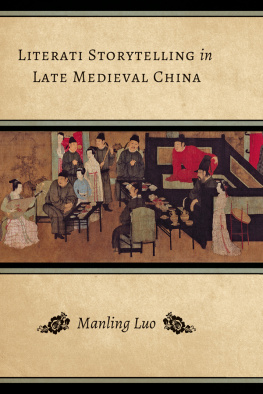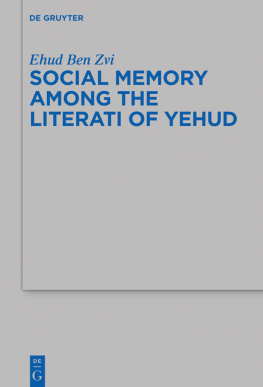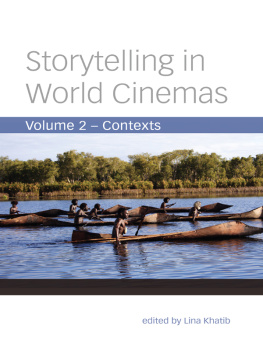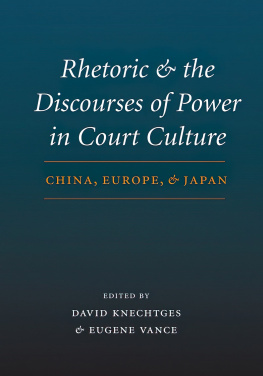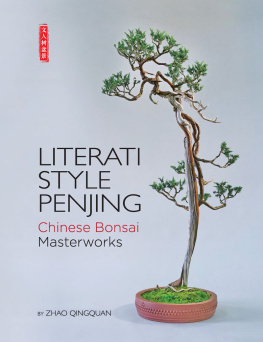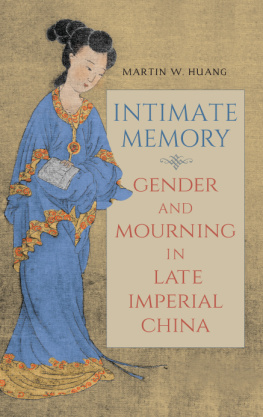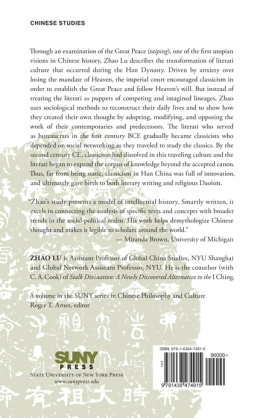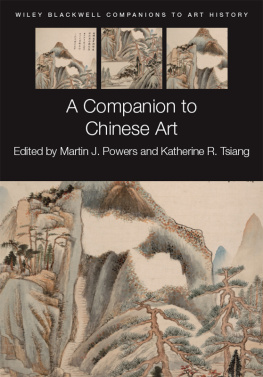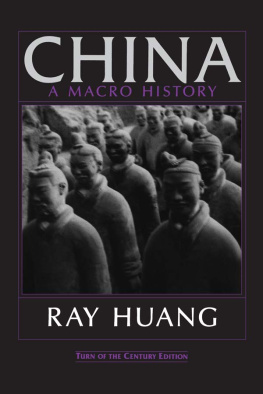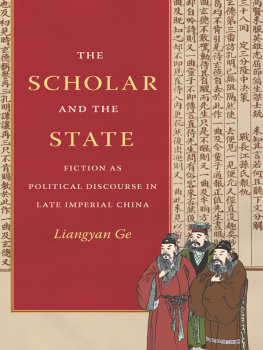THIS BOOK IS MADE POSSIBLE BY A COLLABORATIVE GRANT FROM THE ANDREW W. MELLON FOUNDATION.
All rights reserved. No part of this publication may be reproduced or transmitted in any form or by any means, electronic or mechanical, including photocopy, recording, or any information storage or retrieval system, without permission in writing from the publisher.
Publication of this Book was also supported by a grant from the Association for Asian Studies First Book Subvention Program.
Luo, Manling.
Literati storytelling in late medieval China / Manling Luo.
pages cm. (Modern language initiative)
Includes bibliographical references and index.
ISBN 978-0-295-99414-7 (hardcover : acid-free paper)
ISBN 978-0-295-99415-4 (pbk. : acid-free paper)
1. Chinese literatureTang dynasty, 618907History and criticism. 2. Chinese literatureFive dynasties and the Ten kingdoms, 907979History and criticism. 3. Storytelling in literature. 4. StorytellingChina. 5. Literature and societyChinaHistoryTo 1500. 6. ChinaIntellectual lifeTang dynasty, 618907. 7. ChinaIntellectual lifeFive dynasties and the Ten kingdoms, 907979.
I. Title.
PL2283.L86 2014
895.109003dc23 2014023341
The paper used in this publication is acid-free and meets the minimum requirements of American National Standard for Information SciencesPermanence of Paper for Printed Library Materials, ANSI Z39.481984.
ACKNOWLEDGMENTS
The completion of this book has finally given me the opportunity to tell my own story of indebtedness to the many people who have made the book possible. Robert E. Hegel has been a constant source of support and encouragement. From the earliest drafts to this present form, he has offered numerous suggestions, always insightful and enlightening. His critical acumen and fine scholarship have never ceased to inspire me.
Beata Grant, Lingchei Letty Chen, Steven Miles, Elizabeth A. Oyler, and Linda Nicholson deserve special credit for their thought-provoking comments and questions. They prompted me to reconsider the focus and framework of my project and to venture beyond my comfort zone into the little-explored territories of Tang anecdotal literature. Like the Bodhisattvas that she teaches about, Grant generously gave me much of her time and other invaluable assistance. Oyler has always reached out to me whenever I have needed help and went well beyond her call of duty.
I was fortunate to come to Indiana University, where I found an amazing intellectual community. Lynn Struve has read pretty much everything I have written, sometimes more than once. I have benefited tremendously from her always timely and insightful critiques and corrections. My comrades in a writing group, Heather Blair, Kevin Tsai, and Kevin Martin, sustained me through the long journey of writing and rewriting with their knowledge, insights, patience, and humor. Dubbed the queen of the writing group, Heathers relentless enforcement of deadlines was crucial in keeping me on track. She even read my drafts outside our group schedule, and her incisive questions and suggestions have been invaluable in my struggle to gain conceptual clarity in this project. Scott OBryan and Ellen Wu kindly readparts of the final manuscript and offered very useful comments. A great mentor, Edie Sarra has given me all sorts of much-needed help, from feedback on my writing to tips for teaching. Michiko Suzuki has generously shared with me her successful proposals and given much of her time to comment on my drafts and advise me on how to present my project to a broad audience. In addition to her, I also learned a great deal about grant writing from Sara Friedman, Scott Kennedy, Michael Foster, Ellen Wu, and Jason McGraw, all superb in grantsmanship. Successive chairs of the Department of East Asian Languages and Cultures, Bob Eno, Michael Robinson, and Natsuko Tsujimura, and the director of the East Asian Studies Center, Heidi Ross, have been very generous in supporting my research endeavors through the years.
I have also been blessed with the kindness of many people beyond my university. I particularly appreciate Paul W. Krolls encouragement in the early stages of the project, and his continuing support has been indispensable for its completion. Ronald Egan offered me thoughtful comments and suggestions on more than one occasion. Despite his busy schedule, James Hargett is always willing to give me a hand; he read most of the final manuscript and gave me very useful feedback. Zhang Jies comments on my introductory chapter and Brian Walters on various parts of the manuscript enabled me to fix issues of which I was unaware. Zong-qi Cai has been very generous with his time and advice. Rebecca Copeland enabled me to do research in Japan; my work and life there was made much easier through the help of Liu Xunning, Onozawa Masaki, Oki Yasushi, and Mizobe Yoshie, as well as Nemoto Tatsushi and his friends. While doing research in China, I was very fortunate to receive assistance from Wang Lijia, Cheng Yizhong, and Li Pengfei. Without any complaint, my friend Xu Shengli bought and mailed books to me on short notice when I was in need of certain materials.
I am also grateful to Indiana Universitys East Asian librarian Wen-Ling Liu, who often does magic in solving my problems with databases and book searches, as well as the Interlibrary Loan staff, who have been very efficient and accommodating. I also wish to thank the library staff at the East Asian Library of Washington University in Saint Louis, the National Library of China, the Peking University Library, the Shanghai Library, the University of Tsukuba Library, the University of Tokyo Library, and the Institute for Advanced Studies on Asia at the University of Tokyo.
Daniel Hsieh and Elizabeth Oyler kindly invited me to present my work in progress at Purdue University and the University of Illinois at Urbana-Champaign, respectively, and I benefited greatly from invigorating discussions with them and with my audiences. I also had opportunities to present papers and receive very helpful feedback from fellow presenters, discussants, and audiences at the Association for Asian Studies Annual Conference, the Annual Meeting of the American Oriental Society, the American Oriental Society Western Branch Annual Meeting, and the Tang Studies Twenty-Fifth Anniversary Conference.
The generous support I have received from various institutions has also been indispensable for the initiation, expansion, and completion of my project. A scholarship from the Association of International Education Japan funded my first research in Japan. I was able to further expand my research in China and Japan with the support of a New Frontiers in Arts and Humanities Grant from the Office of the Vice Provost for Research and a Travel and Research Grant from the College Arts and Humanities Institute at Indiana University. Supplementary research funding from the Department of East Asian Languages and Cultures was also crucial for this scholarly undertaking in its various stages. Subsequently, an ACLS Fellowship from the American Council of Learned Societies, an American Fellowship from the American Association of University Women, and a Research Leave Supplement Grant from Indiana Universitys Office of the Vice Provost for Research provided me the much-needed leave time to complete the manuscript.

